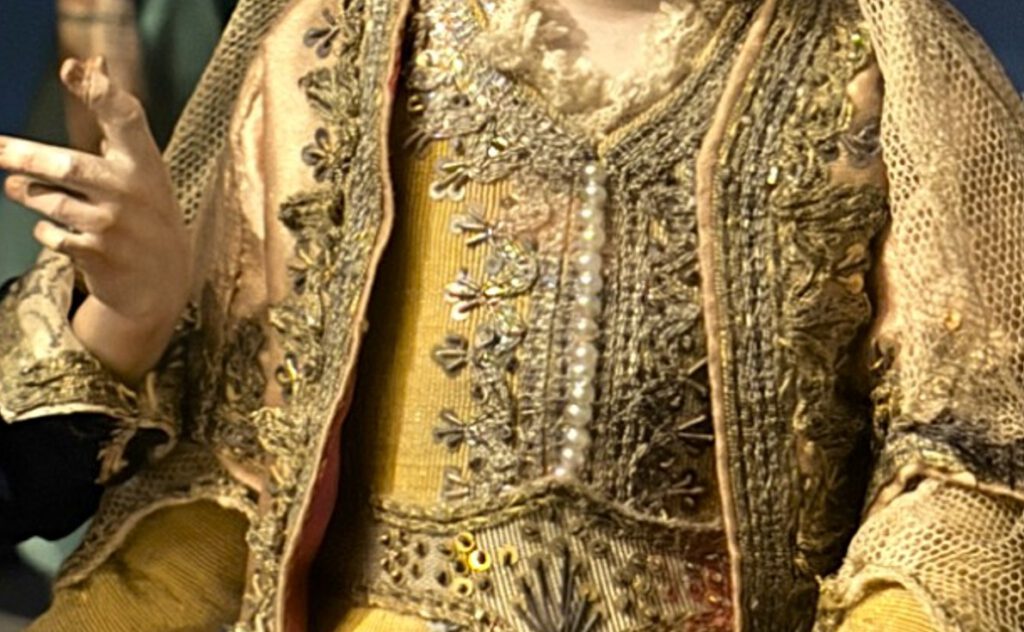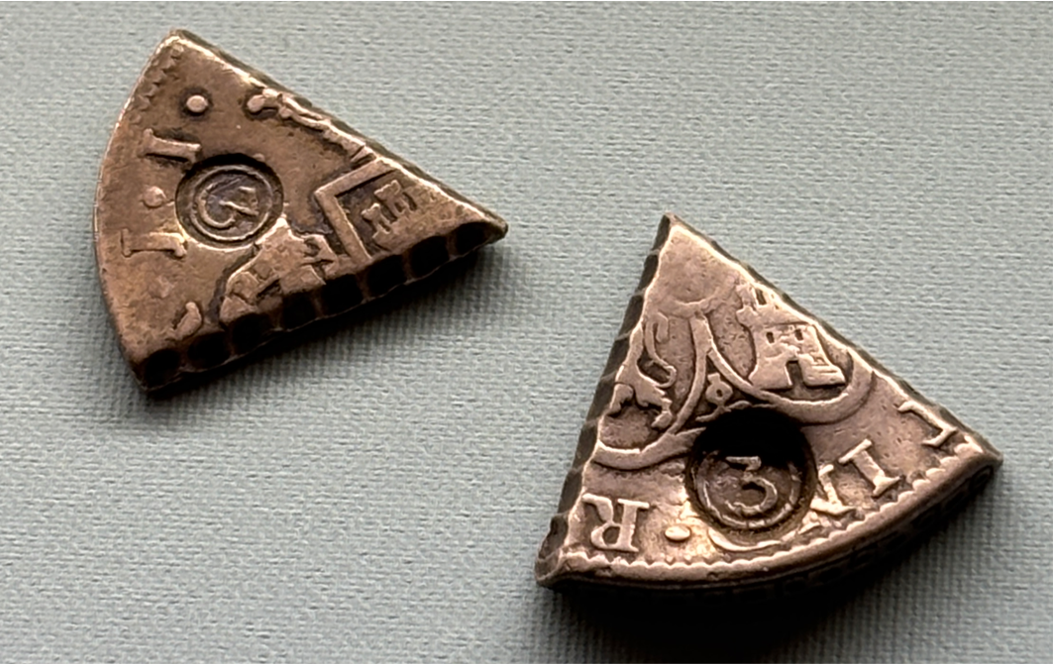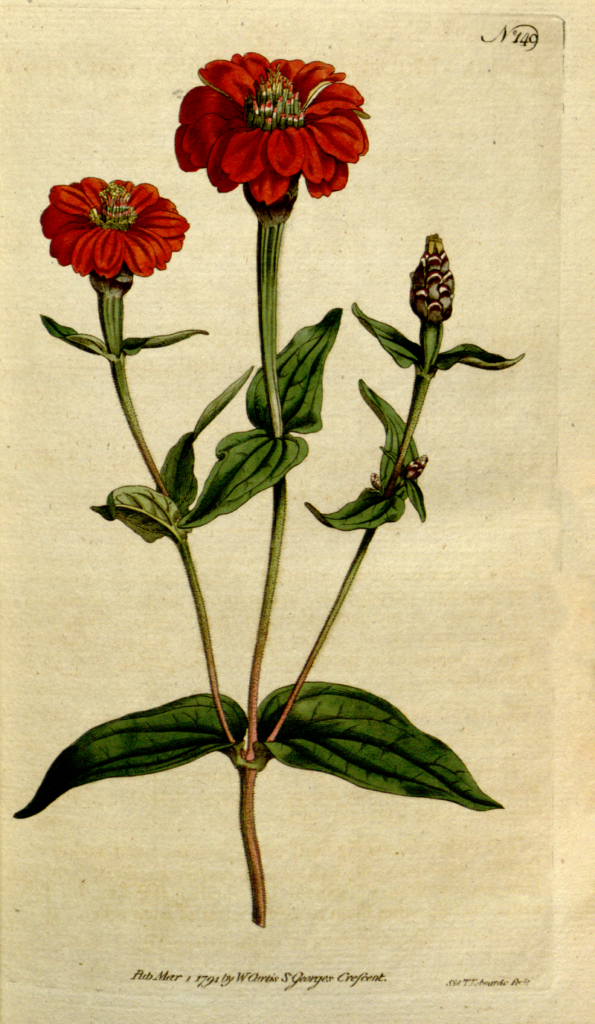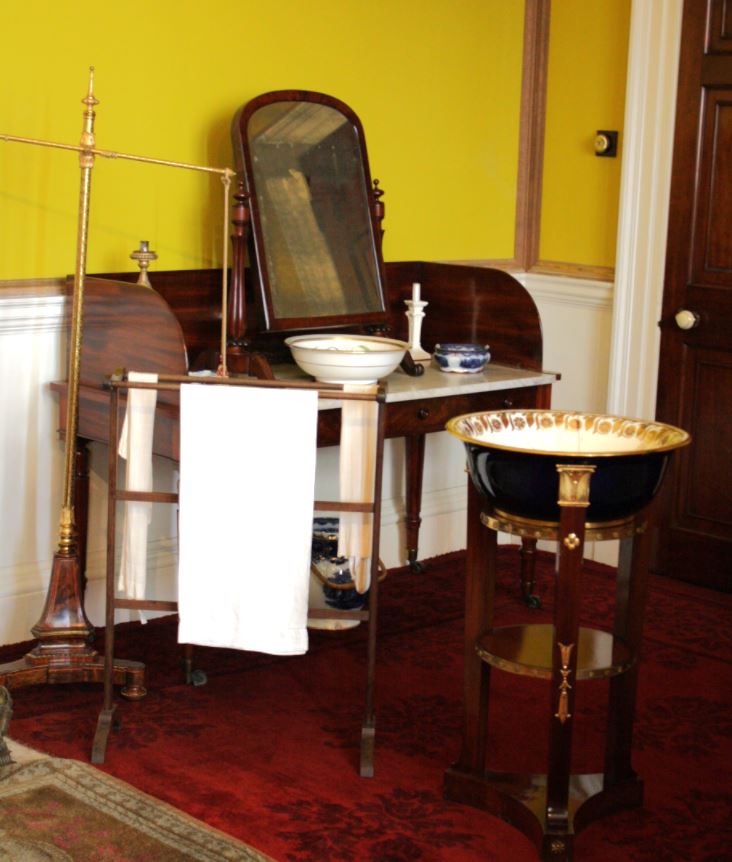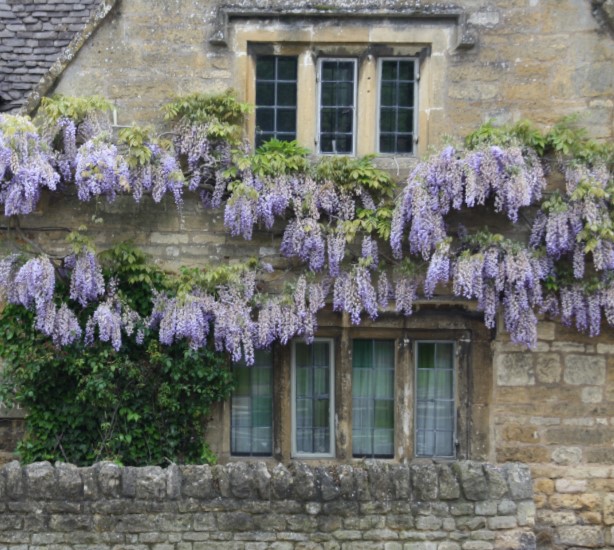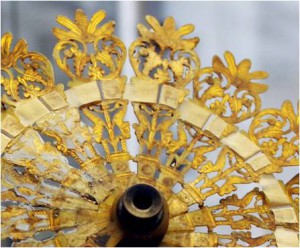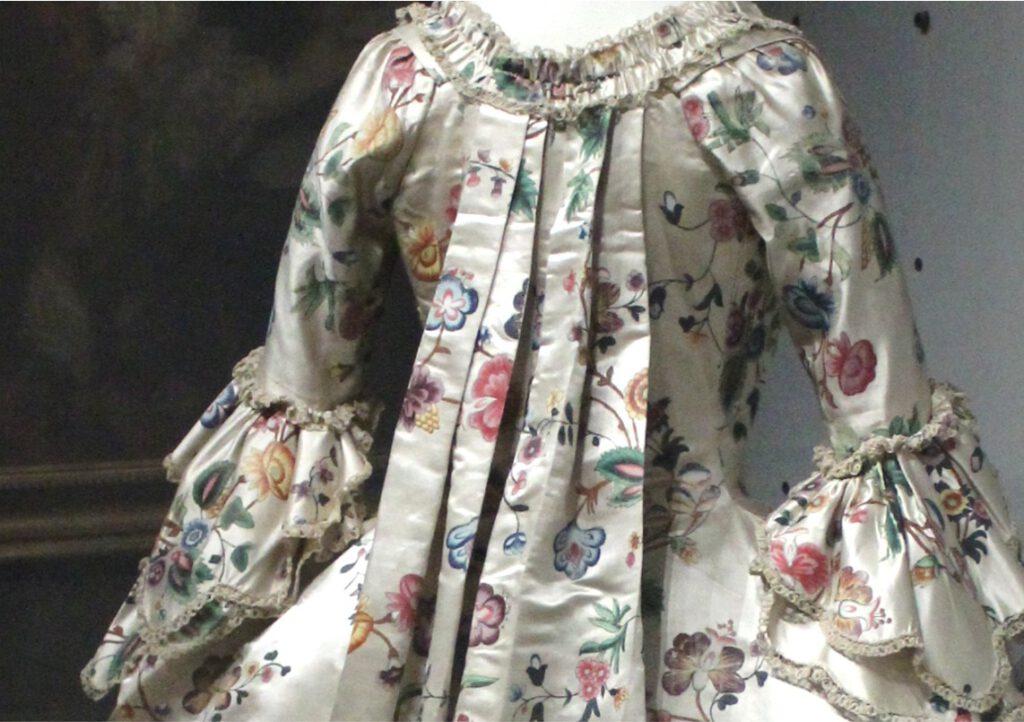
Fashion in the 1740s–1760s is glamorous: For ladies, the must-have item is the robe à la française. This elegant dress with its characteristic back pleats falling from the shoulders to the hem is worn for both formal and informal occasions.
Gentlemen wear a three-piece suit, often richly embroidered. This tried-and-tested outfit was amended gently during the 1740s–1760s to provide a slimmer silhouette and to create a focus on the waistcoat and on the breeches.
Discover fashion for ladies and gentlemen in the period from 1740s-1760s, and scroll down to the large picture gallery.


